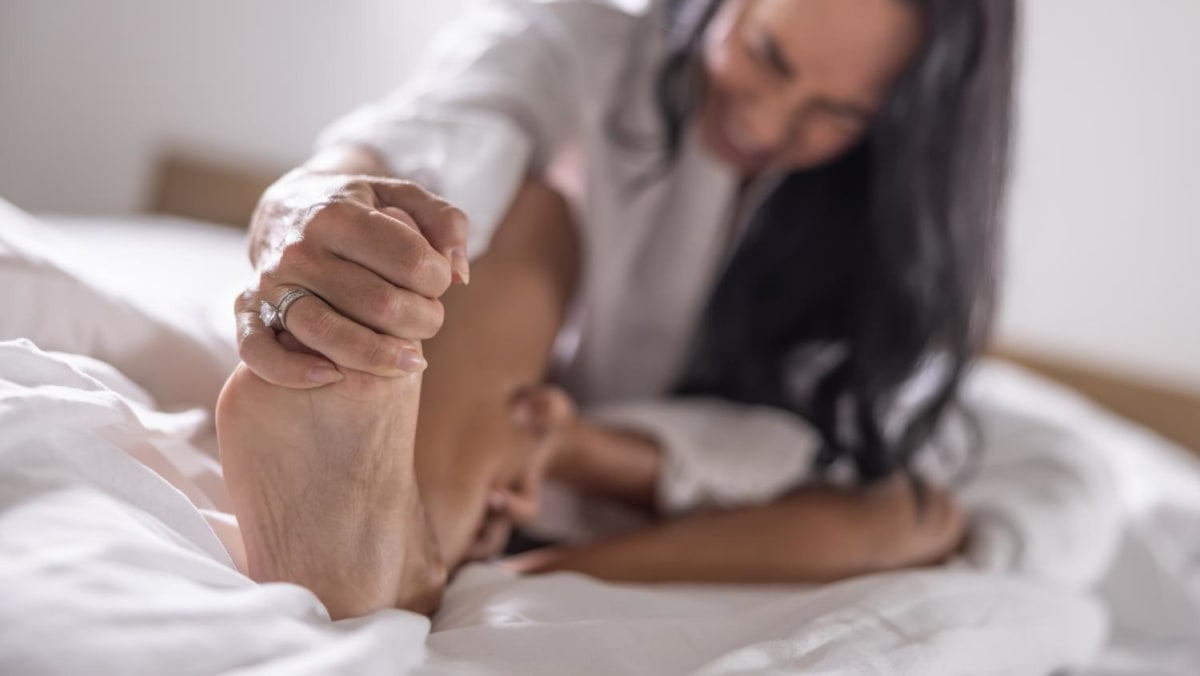
Dr Ang added that the affected muscle may feel hard to the touch and be difficult to move. “Some may experience tingling or twitching before the cramp fully sets in, which can be an early warning sign.”
The sensations that can pass for a muscle cramp can range from muscle spasming to tightening, twinging, straining, swelling or seizing, said Goh. “Sensations that aren’t typical would be sharp pain.”
WHAT’S THE BEST WAY TO TREAT A CRAMP?
“Based on research, no particular treatment is recommended,” said Goh. “But we typically force a sustained stretch on the affected muscle to stop the involuntary contractions. Typically, if the cramp is due to fatigue, you should stop the activity and take a break from it.”
Try stretching the cramping muscle in the opposite direction, advised Poon. For instance, if a cramping calf is forcing your foot into the tiptoe position, pull the foot back into a toe-up position, he suggested.
Also, “applying heat can help relax the muscle, then subsequently applying ice intermittently may reduce the pain”, recommended Dr Ang.
“It usually helps if you replenish your electrolytes, such as eating a banana for potassium, and drinking an isotonic drink”, said Goh. “If it is due to medications or chronic diseases, seek your physician’s advice on what is appropriate and safe.”

